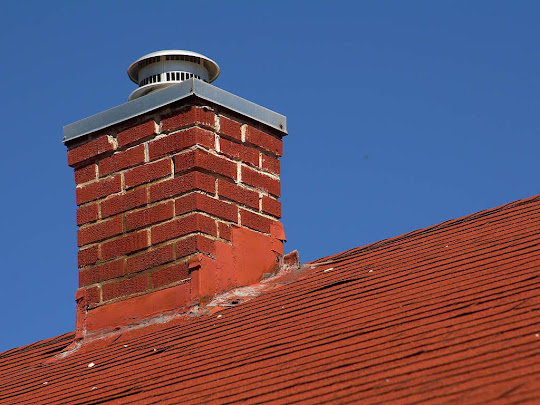Causes of Chimney Odors
Chimneys are greatly responsible for several odors which are entering our home, making the environment of the home unpleasant. The odors can range from mildly annoying to highly disruptive, which can hamper the normal functioning of your living space. To have a safe and comfortable home, maintaining a clean and efficient chimney has turned out to be very important. There can be many reasons for these odors and it is very important to know the exact reasons to prevent and address them effectively.
In this blog, we will go in-depth in understanding the various reasons for chimney odors along with some of the practical ways you can reduce the odor in each cause.
Common Causes of Chimney Odors
- Creosote Buildup
One of the main reasons for chimney odors can be the buildup of creosote, which in simple terms is a natural byproduct of burning wood. This is mostly common in fireplaces where the stoves are made of wood. The smell of creosote depends on the stage of its buildup. Cerestore buildup can be in three main stages, the first stage being flaky which is very easy to remove, the second stage can be tar-like and last the third stage is where the creosote is hard and glazed. Creosote has an overpowering odor that is best characterized as smokey or tar-like. In humid conditions, the smell is considerably worse.
Tip- It is crucial to utilize well-seasoned wood and to have frequent chimney cleanings and inspections to reduce the smell of creosote and avoid its accumulation.
- Moisture and Water Infiltration
Water intrusion can be a significant contributing factor to chimney odor. A multitude of other issues can arise from chimney smells, moisture intrusion, and water infiltration. Owners of chimneys must understand the many openings that allow water to enter the chimney. Damage to the flashing is a common cause of water seeping into the chimney. One type of barrier that commonly occurs at the chimney’s base, or more simply, the point where the chimney and roof meet, is known as flashing. Water may readily enter the chimney through the roof if the chimney installation was done incorrectly. The damaged chimney crown provides another opening for water to penetrate the roof. The crown in the chimney serves primarily as a barrier against water and snow. If there are cracks in the chimney, water can easily enter the chimney which can lead to unpleasant odors. Water can also enter if your chimney is uncapped for a long time. Once, the water has entered the chimney, it can easily mix with creosote and other debris present inside the chimney and can lead to mildew growth, which further leads to unpleasant smells.
Tip- Every chimney owner needs to make sure that their chimneys are waterproof and along with this, it is important to give regular repairs to the chimney to prevent moisture-related odors.
- Animal Intrusions
For many animals like birds, squirrels, rats, and raccoons chimneys sound attractive. Animals start building their nest inside the chimneys which block the airflow which leads to odors. The odors even become worse when the animal gets trapped and dies inside the chimney. The decomposition process of animals can create extremely foul smells. In order to prevent animals from entering into your chimney.
Tip- Chimney owners need to install a chimney cap along with these regular inspections that can even help in making sure that there is no animal taking shelter inside your chimney.
- Negative Air Pressure
Another reason for odors from your chimney can be negative air pressure which leads to the venting of odors inside the house, instead of letting it go out. The negative air pressure can be because of many reasons like tightly sealed homes, the presence of exhaust fans, the stack effect and many more.
Tip- To prevent the odor because of negative air pressure it is important to ensure ventilation in your home and also make sure that your chimney has a proper draft which helps in mitigating the negative air pressure.
- Soot and Ash Accumulation
Soot and ash are the byproducts of burning fuels in your fireplace or stove. Thus, substances like soot and ash accumulated in the chimney which can cause a burnt or smoky smell. Also during windy weather conditions, it is important to make sure that there is no soot and ash accumulation as the odor caused because of them can spread throughout your home.
Tip- To avoid this accumulation, it is important to schedule regular chimney cleaning.
- Draft and Ventilation issues
A chimney can work properly if there is a presence of perfect draft and ventilation. There are several factors which can affect ventilation like blockages because of debris or creosote which can affect the workflow. Another factor can be the improper chimney height which can affect the draft, also the poor design of the chimney can affect the ventilation which leads to odor issues.
Tip- To make sure that there is proper ventilation in your chimney, it again turns out to be important to regularly get chimney repair services.
Wrapping Up
The first step to preventing chimney odors is to understand the major causes of chimney odors and then address and fix them. Regular cleaning and inspections from a professional and reputable chimney sweep are very important as they can help resolve all the problems before they become significant issues. At A Step in Time Chimney Sweeps, we are dedicated to helping you maintain a safe and odor-free chimney to make your home a comfortable haven.
If you are facing chimney odors or need a professional chimney inspection, reach out to our team of experienced professionals. They are solutions for every problem, from cleaning to maintenance, repairs, installations and many more. Contact us today, to make your home odor free.
Originally posted on : https://chimneysweep.com/causes-of-chimney-odors/
.jpg)
.jpg)
.jpg)

Comments
Post a Comment